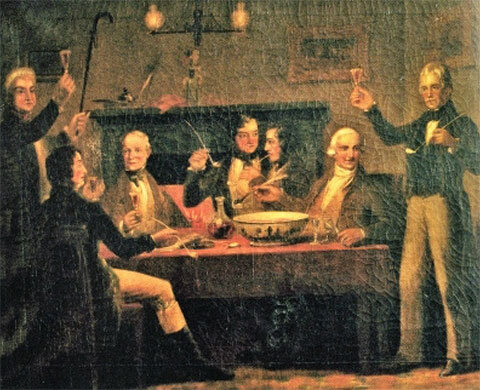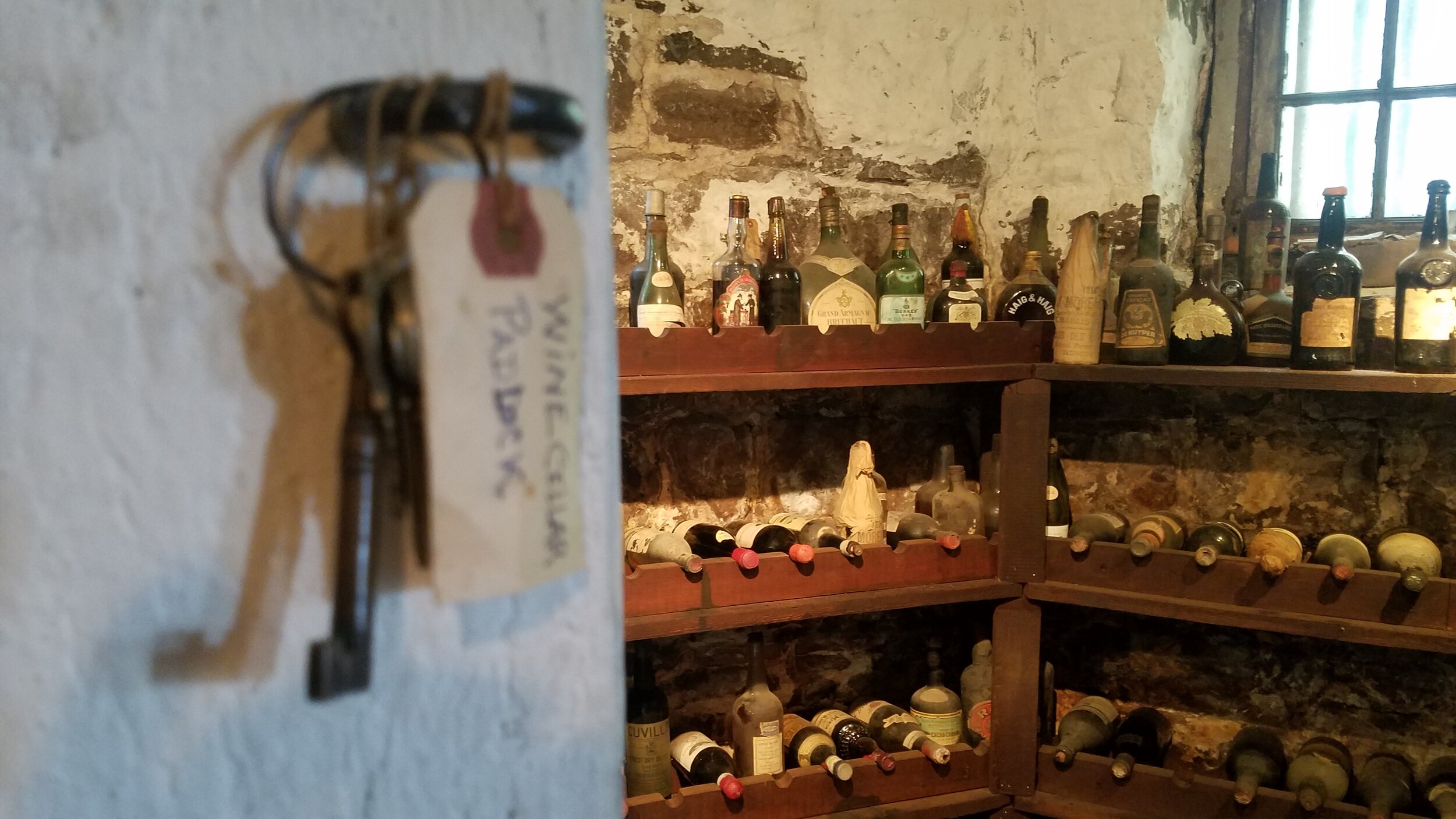Madeira Wine’s Influence On The American Revolution
Collection of Madeira Wine found in Kean University’s Liberty Hall in 2015.
Portuguese wine is as American as apple pie and taxes. In fact the, taxation of imported goods, in particular wines from Portugal, is one of the elements that led the American colonies to start a revolution and declare independence from Great Britain.
Madeira is a fortified “cooked” wine that hails from the island of Madeira, the largest island of the Madeira Archipelago situated about 700 miles from Portugal. The Maderians have a long standing winemaking tradition dating back to the age of exploration in the late 15th century. Producers would use neutral grape spirits to help keep the wine from spoiling on long voyages overseas. Once in wooden barrels and aboard ships, the wine would be exposed to long periods of heat from the sun and sea movement. This process, which started as a happy accident, created the cooked (or oxidized) flavor of the wine we recognize today.
The island of Madeira was an important port of call for the British empire during its colonization period. The alliance between Great Britain and Portugal allowed for madeira wine to be the alcoholic beverage of choice for colonial-America, as this new region lacked the viable wine grape varietals needed to produce its own wine. George Washington was known to drink a bottle of madeira a day, and he commissioned copious amounts of the elixir for his army men throughout the war. Records show that madeira wine was a huge part of Washington’s life, including his presidency, and he enjoyed it every day until his death in 1799.
Tensions between Great Britain and the American colonies were high in the late 1760’s when the British established programs meant to increase tax on import products, and impose greater control over colonial affairs. Things reached a fever pitch in 1768 when John Hancock tried to smuggle in barrels of madeira aboard his ship, Liberty, and British officials seized the haul in the port of Boston. They were quickly met by a large and angry Bostonian mob who rioted and destroyed British ships in retaliation. This event would lead to the Boston Massacre, which served as a catalysts for the Revolutionary War.
George Washington and John Hancock weren’t the only revolutionary fans of madeira wine. John Adams told his wife, Abigail, that the First Continental Congress delegates would sit around for hours drinking madeira wines after tedious days of contentions debate. And most famously, Thomas Jefferson would go on to sign and celebrate the Declaration of Independence by drinking madeira wine.
Once the war was over in 1783 the relationship between America and madeira wine changed. Debt ridden from the war, the colonies and their newly minted governments had to weigh their economic options. Not wanting to burden their domestic trade with taxes, state governments opted to charge tariffs on imported goods, and the most affected were wines and spirits – particularly British and Portuguese. The changing landscape led madeira producers to lose their hold in the American market, and this once prominent element of the North American economy came to be known as a niche dessert wine.
Every so often we are reminded of madeira’s important role in America’s history. In 2015, during a remodel of New Jersey’s Kean University Liberty Hall, a few dozen bottles full of madeira wine dating back to the 1790’s were found stored behind a wall believed to have been erected during Prohibition. Liberty Hall, built in 1772 and now a museum, was home to many historical figures, including Alexander Hamilton, as well as William Livingston, NJ’s first governor and signatory of the American Constitution. Some of the over 200 year old wine was later auctioned off for hundreds of thousands of dollars, speaking to the longevity and value of this incredible elixir.
It’s evident that madeira wine should have a more prominent role in America’s 4th of July celebrations. I would argue that this wine, more so than any other alcoholic beverage, should be considered as the beverage of choice in commemoration of the founding of this great country.
Happy Birthday America, and saude!






